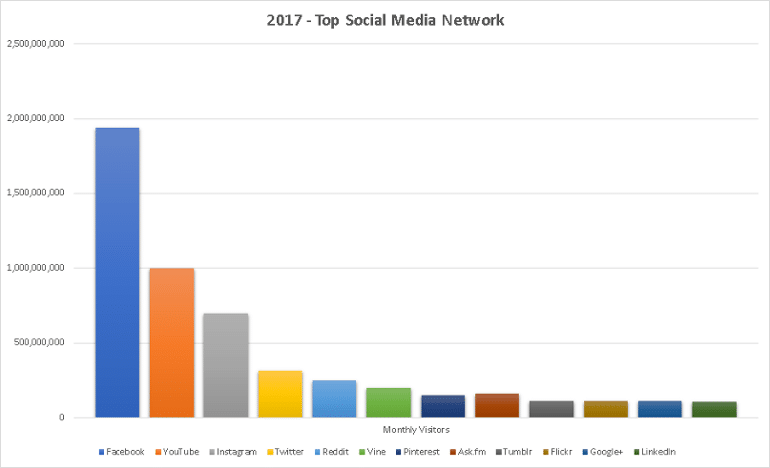Avoid HIPAA Violations When Dental Marketing with Social Media
Within the past 10 years, we have seen new technology that made us change our traditional marketing approach to patients. We are adapting to these new communication tools to reach a bigger audience. Is social media a critical part of your dental internet marketing and patient engagement strategy? If so,how often are you training your team members on the importance of staying HIPAA compliant while networking online?
Social media are web-based communication tools that enable people to interact with each other by both sharing and consuming information as defined by Lifewire. Social media channels have changed the way patients are interacting with their healthcare providers. Many patients are going on to medical and dental websites and checking Facebook and other social media outlets to read reviews before scheduling an appointment with a healthcare provider. Did you know that 42% of consumers in the United States have used social medial to read consumer reviews?
DreamGrow compiled a list of top used social media networking sites for 2017. Are you currently networking on these sites?

Change your setting on your social media accounts to allow your practice to approve any posts that you are tagged in and maybe visible to others. Patients can and occasionally post about their recent procedure and visit. However, you should not repost, retweet or regram this information on your account without written consent from the patient. Another thing to bear in mind is posting videos and/or pictures of your practice and team members. Remember to check the background “noise” to see if any patient information is visible.
Would you consider this a HIPAA violation?
A patient posted on a medical practice Facebook page to compliment the doctors and staff about a recent visit. The medical practice replied back to the post with a Thank you message including “Congratulations on beating cancer.”
Don’t get trapped into violating HIPAA on your website and social media outlets. That means no posting of patient photos or identifying protected health information, or even information that can inadvertently identify a patient. Don’t ever respond to health related questions posted to your social media accounts. Keep your message and content generic. In the sample above, the medical practice could have replied back with a simple message, such as, “Thank you for your kind words.” Consider using a secure email service or patient portal to communicate sensitive patient health information.
Some practices and team members mistakenly disclose personal information without realizing it. Personal information isn’t just the patient’s first name, last name, date of birth, social security numbers, and pictures. Do you know what the 18 personal identifiers are on the HIPAA list?
- Names
- All geographical subdivisions smaller than a state including street address, city, county, precinct and zip
- All elements of dates (except year) for dates directly related to an individual (birth date, admission date, etc)
- Social security numbers
- Certificate/license numbers
- Telephone numbers
- Fax numbers
- Email addresses
- Biometric identifiers, including finger and voice prints
- Full face photographic images and any comparable images
- Vehicle identifiers and serial numbers (license plate numbers)
- Device identifiers and serial numbers
- Web universal resource locators (URLs)
- Internet protocol (IP) addresses
- Medical record numbers
- Account numbers
- Health plan beneficiary numbers
- Any other unique identifying number, characteristic, or code
Using Social Media as a Form of Professionalism
With the dangers of a HIPAA violation, why would a medical or dental practice want to be visible on social media? Social media outlets are where your patients are looking for answers, and many of the questions that they are having can easily be answered online without the need to physically see someone from your office to obtain the information. Another benefit to having your practice visible on social media is the ability for patient to read reviews and experiences from other patients. Lastly, patients who are looking for a recommendation on a new doctor or practice will most likely post on social media asking friends and family for help. Just in the month of August, I saw 5 posts from members on our local community Facebook page asking for recommendations on a new dentist because the existing dentist isn’t accepting the family’s insurance plan anymore, suggestions on what medical practice is accepting new patients because the family just moved in, or what urgent care is still open in the middle of the night. As expected, a flood of friends and family replied back with their experiences and posting direct links of their favorite healthcare provider or practice’s Facebook page. This person now has valuable information, such as how many people recommended XYZ Practice, and a direct link to XYZ Practice’s Facebook page for additional information on hours, location, telephone and patient reviews. There are many positive and negative effects of social media. Create a social media presence that will provide significant opportunities for your current and prospective patients to gain more professional information about you and your team.
Read our previous blog post here on how to create your own DIY dental marketing guide to gain more patient referrals.
Schedule a free demo
Simplify your patient intake workflow with online patient forms
Automate your workflow process by merging patient forms directly into your dental software. We integrate with Dentrix, DSN, Eaglesoft, OrthoTrac, SoftDent and WinOMS.

